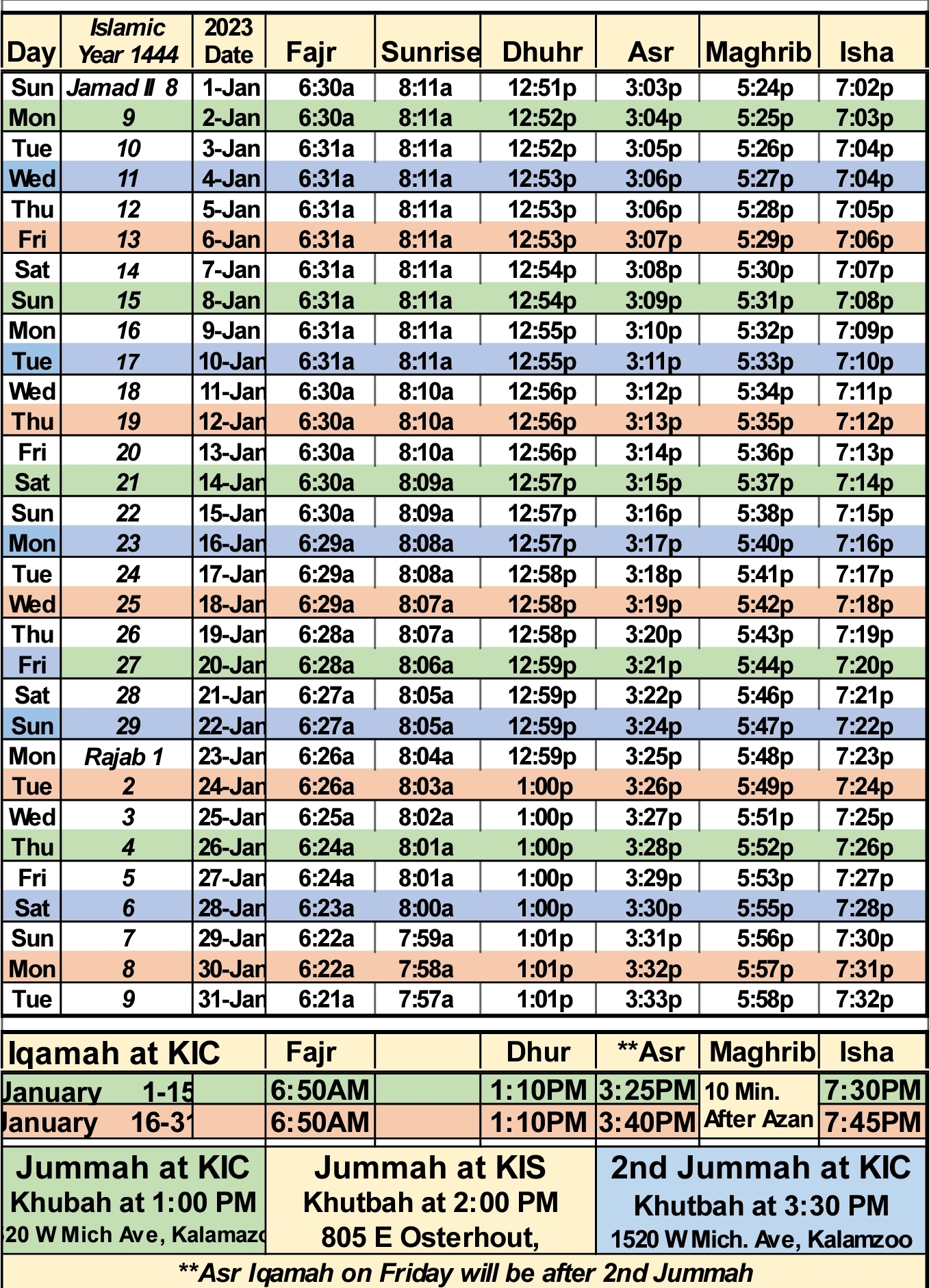
In our fast-paced world, finding moments of tranquility can often feel like a daunting task. The hustle of daily life tends to drown out the quiet calls for reflection and peace. However, many individuals discover solace in the rhythm of prayer, anchoring their days around designated prayer times that provide a structured opportunity for spiritual connection. These moments can serve as beacons of hope and guidance, enabling us to pause, reflect, and realign our priorities amidst the chaos.
Understanding daily prayer times is essential for anyone seeking a deeper spiritual practice. Each prayer holds significance and brings its own unique focus, offering a chance to cultivate mindfulness and gratitude. By weaving these sacred moments into our routines, we can foster a sense of balance and peace that resonates throughout our lives. This guide aims to illuminate the importance of prayer times and how they can enhance your spiritual journey, inviting a harmonious flow into your everyday existence.
Understanding Prayer Timings
Prayer timings are essential for those who seek to incorporate regular spiritual practice into their daily routine. These timings often align with significant moments in the day, creating a structured framework for prayer. Gebetszeit By following specific times, individuals can cultivate a deeper connection with the divine, using these moments to pause and reflect on their lives and their faith.
The schedule typically revolves around key events such as dawn, midday, and sunset. Each timing serves a unique purpose and offers distinct opportunities for reflection and gratitude. These moments can act as reminders to step back from the busyness of life, fostering a sense of peace and mindfulness throughout the day. By observing these times, practitioners often find a rhythm that enhances both their spiritual journey and daily life.
Understanding these timings can vary based on geographical location and seasonal changes. Various communities may follow different calculations or traditions, which is why it is important for individuals to seek guidance from their local religious authorities or trusted sources. This personalized approach can help ensure that practitioners align their prayers with their beliefs and community practices, creating a more enriching experience.
Establishing a Daily Routine
Creating a daily routine centered around prayer times can greatly enhance your sense of peace and connection. Start by identifying the prayer times that are relevant to you, whether they align with religious practices or personal beliefs. Mark these times in your calendar or set reminders on your phone. This will serve as a gentle nudge to pause, reflect, and engage in the spiritual practice of your choice.
Once you have established your prayer times, consider designing your day around them. This could mean waking up a little earlier to ensure you can focus on morning prayers without the rush of daily responsibilities. Similarly, carve out dedicated moments in the afternoon and evening to reconnect with your intentions and beliefs. By planning your activities around these sacred intervals, you are prioritizing your spiritual well-being.
Finally, cultivate a physical and mental space conducive to prayer during these times. Whether it is a quiet corner in your home, a favorite chair, or a spot in nature, find a place where you can immerse yourself in the rhythm of prayer. Make this space inviting and comfortable to encourage reflection. By integrating these elements into your daily routine, you will nurture a deeper sense of peace and fulfillment throughout your day.
Benefits of Consistent Prayer
Consistent prayer offers a multitude of benefits that extend beyond spiritual connection. Engaging in daily prayer times helps cultivate a sense of routine and discipline in one’s life. This structured approach not only encourages commitment but also fosters a deeper relationship with the divine. By dedicating specific moments to prayer, individuals can find stability in their daily lives, creating a sanctuary of peace amidst the chaos of everyday responsibilities.
Moreover, regular prayer can significantly enhance mental well-being. It serves as a powerful method for stress relief, allowing individuals to pause, reflect, and gain perspective on their challenges. The act of prayer provides an opportunity for introspection, which can lead to greater self-awareness and emotional resilience. As people communicate their thoughts and feelings through prayer, they often experience a sense of comfort and reassurance, which can alleviate anxiety and promote inner tranquility.
Finally, consistent prayer times can strengthen community bonds. When individuals come together to pray, they create a shared experience that fosters connection and support among peers. This communal aspect of prayer can enhance feelings of belonging and encourage mutual upliftment, leading to improved relationships and shared understanding. Regular gatherings for prayer can serve as a reminder of collective faith and unity, enriching the spiritual journey of each participant.